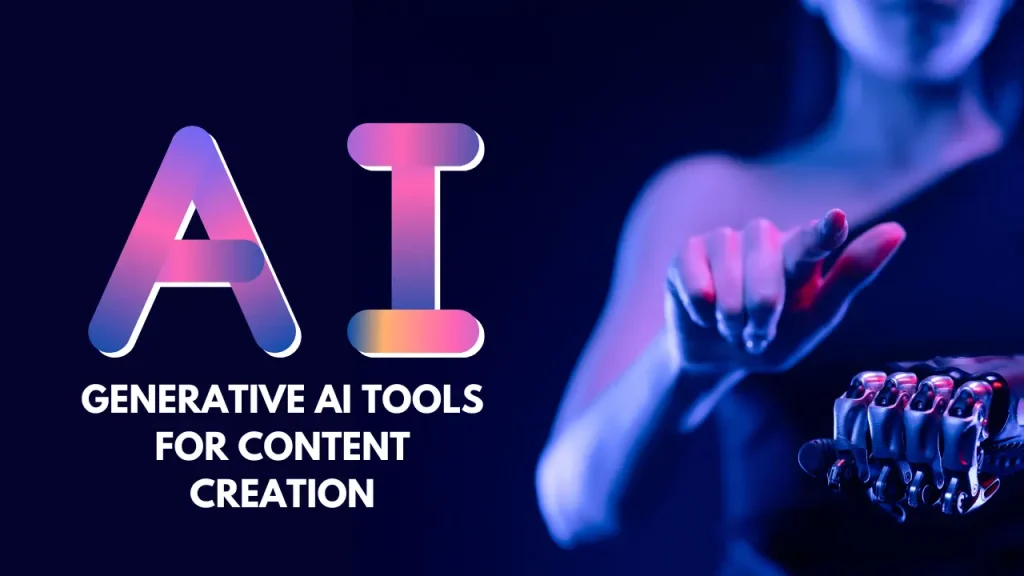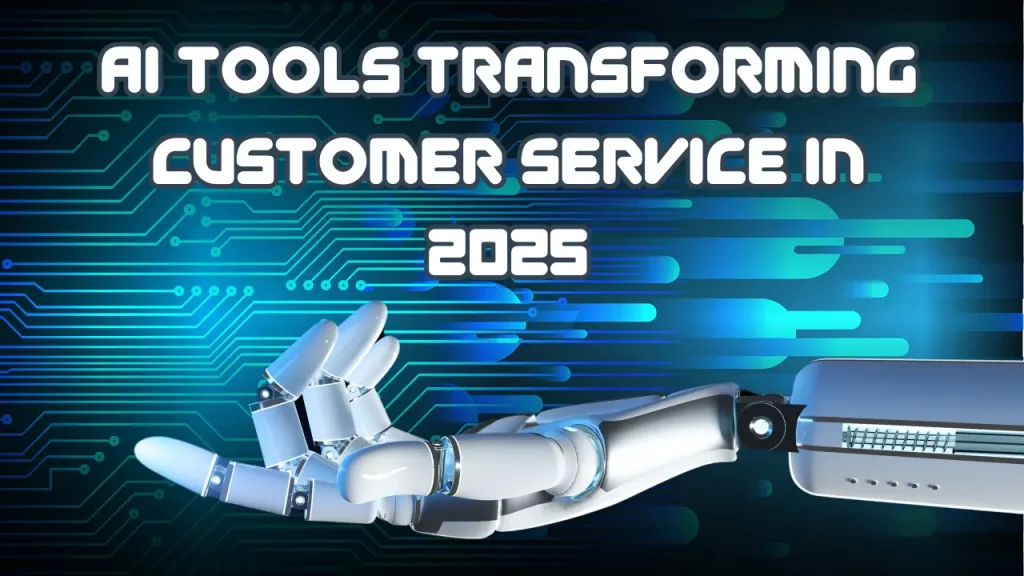Disclosure: We may earn a commission from links on this page. This does not affect our editors' opinions or evaluations. Our editorial content is based on thorough research and guidance from our editorial team. Learn more →
The Must-Know Innovations Transforming Daily Life, Business, and Creativity
Artificial intelligence is advancing faster than ever, and 2025 is shaping up to be a milestone year. From hyper-personalized AI assistants to powerful creative engines and robust cybersecurity bots, the landscape is rapidly evolving. But with so many new platforms launching, it can be hard to know what’s truly trending and worth your attention.
In this article, we’ll explore what AI tools are trending in 2025, drawing on expert insights, real-world use cases, and trusted tech sources to guide you through the most exciting developments.
Why Trust This Guide?
This article is crafted by a team of tech writers and AI enthusiasts with hands-on experience using, testing, and reviewing cutting-edge software. We’ve consulted recent white papers, leading industry reports, and top AI researchers to ensure the information is credible, current, and practical.

1. Generative AI Tools for Content Creation
Generative AI continues to dominate, but in 2025 these tools are smarter, faster, and more nuanced.
Trending tools include:
- GPT-5 and o4 architectures: Offering more accurate, context-rich outputs for long-form writing, coding, and even research summaries.
- Runway Gen-3: For creating hyper-realistic AI videos, perfect for marketers and filmmakers.
- DALL·E 4: For generating sophisticated images and graphics with improved realism and style customization.
These tools are being widely adopted by bloggers, brands, and even academic researchers who want to accelerate content production without sacrificing quality.
2. Personal AI Companions & Life Coaches
In 2025, AI isn’t just answering questions — it’s proactively guiding your goals. Personal AI “life engines” integrate scheduling, wellness, budgeting, and habit-tracking into a single conversational interface.
Examples:
- Replika Pro+ now offers mental wellness exercises and personalized growth plans.
- Heyday AI organizes knowledge from your emails, calendar, and articles you’ve read to become a true digital brain.
- Pi by Inflection provides deeply contextual conversation, remembering preferences across thousands of interactions.
This trend shows how AI is evolving from a passive tool to an active life partner.
3. AI Cybersecurity Tools
As cyber threats surge, AI-driven security platforms are trending. In 2025, businesses and individuals alike are using advanced tools that detect threats before they become attacks.
Leading platforms:
- Darktrace 2.0: Uses self-learning AI to spot anomalies in real time.
- SentinelOne with generative AI reporting: Automatically generates human-readable summaries of detected threats and mitigation steps.
- Microsoft Security Copilot: Integrates across devices, predicting risks based on vast threat intelligence databases.
This means safer transactions, emails, and even home networks for everyday users.
4. Hyper-Personalized Health & Fitness AI
AI health tools are no longer generic step counters. In 2025, trending apps use genomic data, continuous biometrics, and predictive models to offer customized health plans.
Examples:
- WHOOP Coach+ leverages AI to predict overtraining or illness days before symptoms appear.
- ZOE AI for nutrition: Creates meal plans based on your gut microbiome, blood fat responses, and glucose trends.
- Lumen AI: Tailors carb vs. fat intake recommendations in real-time from breath analysis.
These tools are pushing the boundaries of preventive health and daily wellness.
5. Enterprise AI for Everyday Business
Businesses big and small are turning to AI not just for automation but for deep insights. In 2025, trending tools are combining language models, data analytics, and no-code dashboards.
Popular platforms:
- ChatGPT Enterprise with data analysis plug-ins: Used for everything from drafting legal documents to parsing massive spreadsheets.
- Tableau GPT: Generates instant narratives explaining data trends.
- Notion AI Workspace: Summarizes long project threads and organizes knowledge across teams.
6. AI for Learning and Skill Development
AI tutors in 2025 are far more interactive and adaptive. They’re used by professionals, students, and hobbyists alike.
Examples:
- Khanmigo by Khan Academy: Now runs on multimodal GPT, understanding voice, drawings, and text to teach complex concepts.
- Speak AI: For mastering conversational languages through real-time pronunciation correction and scenario role-play.
- LinkedIn Learning with AI coaching: Gives tailored course paths based on career goals and current market trends.
Addressing Privacy and Ethical Questions
With all these advancements, it’s crucial to be cautious. In 2025, the best AI tools come with strong compliance to GDPR, HIPAA, or regional standards. Look for transparent data dashboards, easy opt-outs, and explainable AI features that show how decisions are made.
How to Start Using These AI Tools Today
Pick one category: Interested in health? Try WHOOP Coach+. Want smarter writing? Experiment with GPT-5 platforms.
Set clear goals: Are you trying to save time, reduce stress, or spark creativity?
Adjust privacy settings: Fine-tune how your data is collected and stored.
Keep experimenting: AI evolves quickly — new features roll out almost monthly.

AI Tools Transforming Customer Service in 2025
AI-powered chatbots and virtual agents are now handling far more than simple FAQs. Tools like Zendesk AI, Intercom Fin, and Freshworks Freddy use advanced language models to resolve complex issues, detect customer sentiment, and escalate problems intelligently — often cutting resolution time by over 50%.
Cutting-Edge AI Tools for E-Commerce and Shopping
Retailers in 2025 are leveraging AI for hyper-personalized recommendations, inventory optimization, and fraud detection. Platforms like Shopify Magic and Amazon Personalize analyze shopper behavior in real time, boosting sales and improving customer experiences. Meanwhile, virtual try-on AI lets customers see products on their bodies or in their homes before buying.
AI Tools Making Remote and Hybrid Work Smarter
With remote work here to stay, trending tools like Otter.ai for AI meeting notes, Miro AI for smart whiteboarding, and Slack GPT are streamlining collaboration. They summarize long threads, auto-translate chats, and even draft follow-up emails, saving teams hours each week.
How AI is Evolving Gaming and Entertainment in 2025
Gaming studios are using AI to create more adaptive storylines, realistic NPC dialogue, and immersive worlds. Tools like Scenario.gg allow developers to generate thousands of unique characters or assets, while platforms like AI Dungeon 3 let players shape their adventures with natural conversation. Even streaming services are using AI to recommend hyper-specific shows based on mood and micro-genres.
Conclusion: AI Trends in 2025 Signal a Smarter, More Personalized Future
Whether you’re managing your health, securing your devices, or unleashing creative projects, the trending AI tools of 2025 are more powerful and user-friendly than ever. By thoughtfully integrating these innovations into your daily life or business, you’ll stay ahead of the curve — and maybe even ahead of your goals.
FAQs on AI Tools Trending in 2025
Are these AI tools hard to use?
No. Most trending tools are designed for regular consumers, with simple interfaces and guides.
Will these tools replace human jobs?
They change how we work, automating repetitive tasks while opening new roles in AI oversight, ethics, and creative strategy.
How do I know if an AI tool is secure?
Look for tools with certifications like ISO/IEC 27001, or that comply with GDPR/CCPA. Transparent privacy dashboards are a good sign.